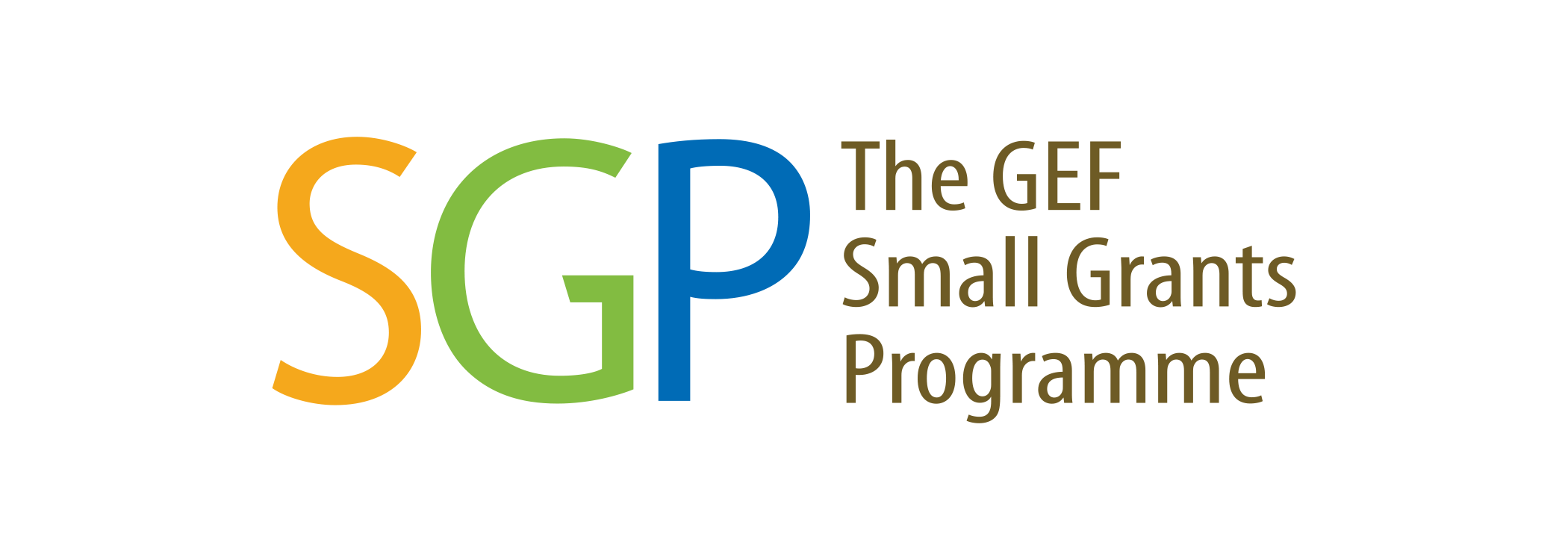Coastal Life and Resilience
Diversifying livelihoods and building resilience of coastal communities on Rodrigues Island, Mauritius
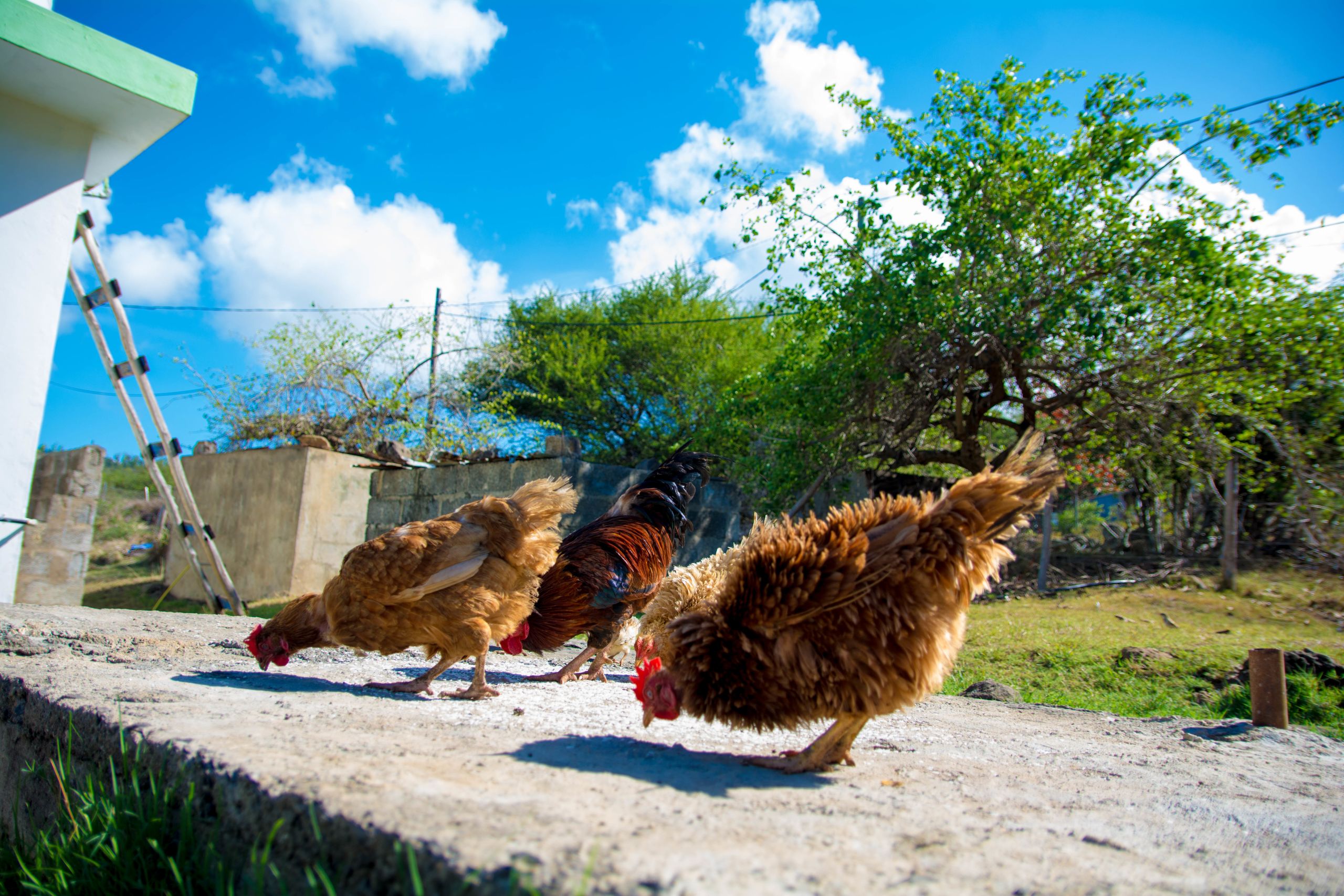
Located in the southwest Indian Ocean, the small volcanic island of Rodrigues is surrounded by an extensive coral reef platform that is recognised as a global biodiversity hotspot and supports rich marine habitats full of endemic species.
As part of the Republic of Mauritius - known as a top tourist destination for its white sandy beaches and turquoise waters - Rodrigues has an economy still heavily dependent on agriculture, livestock farming, and fishing, with over one third of its workforce employed by these sectors.
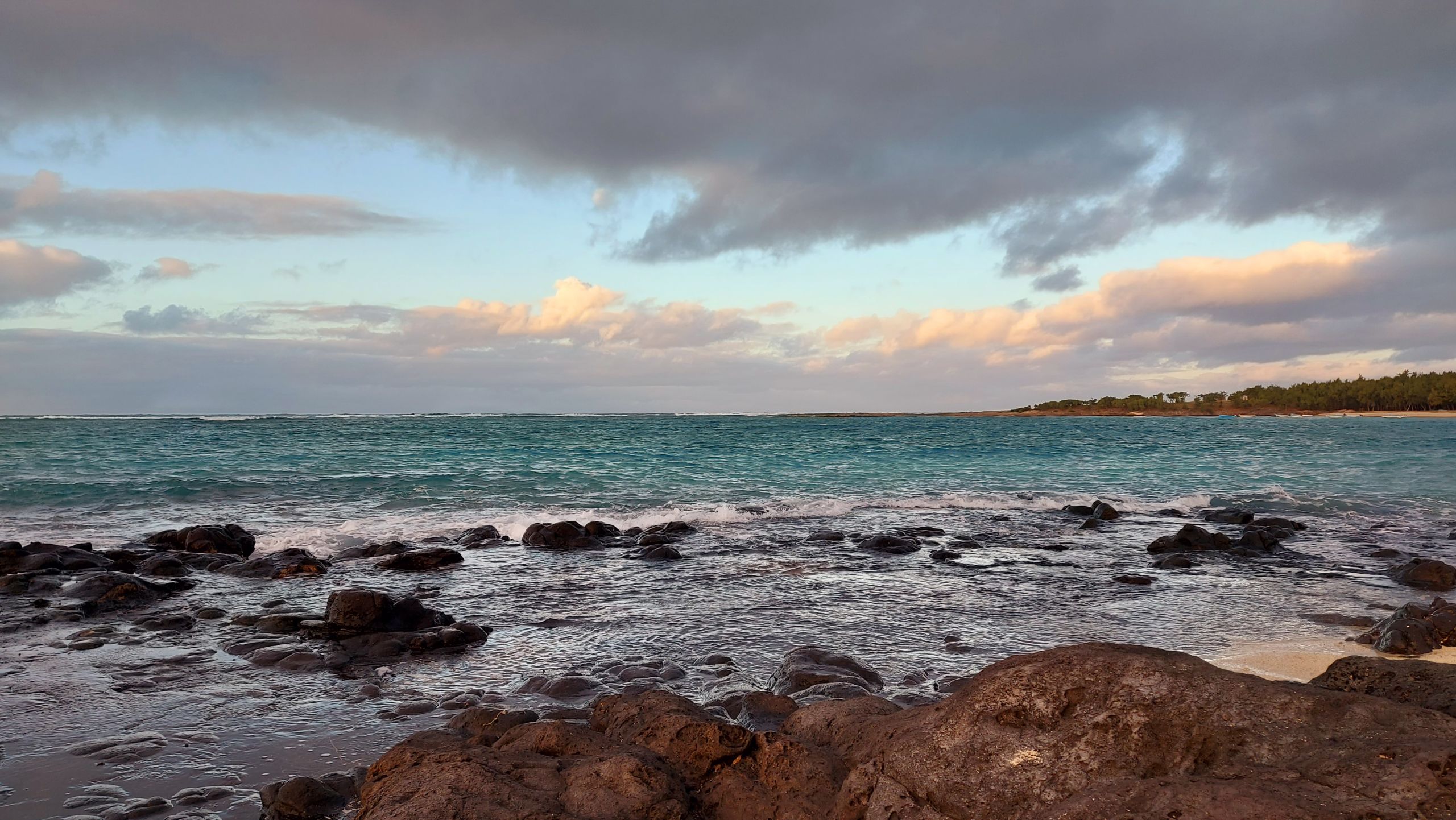
Rodrigues Island coastline, Mauritius. Photo: © UNDP Mauritius, SGP Mauritius.
Rodrigues Island coastline, Mauritius. Photo: © UNDP Mauritius, SGP Mauritius.
However, severe droughts make agriculture a challenge on the island, while local fishers have observed a 75 per cent decrease in octopus and reef fish catches in the past decade.
“Due to climate change, pollution and over-fishing, our lagoon fish catch has been on the decline”, says Rogers, president of the Baie du Nord village, on the north coast of Rodrigues.
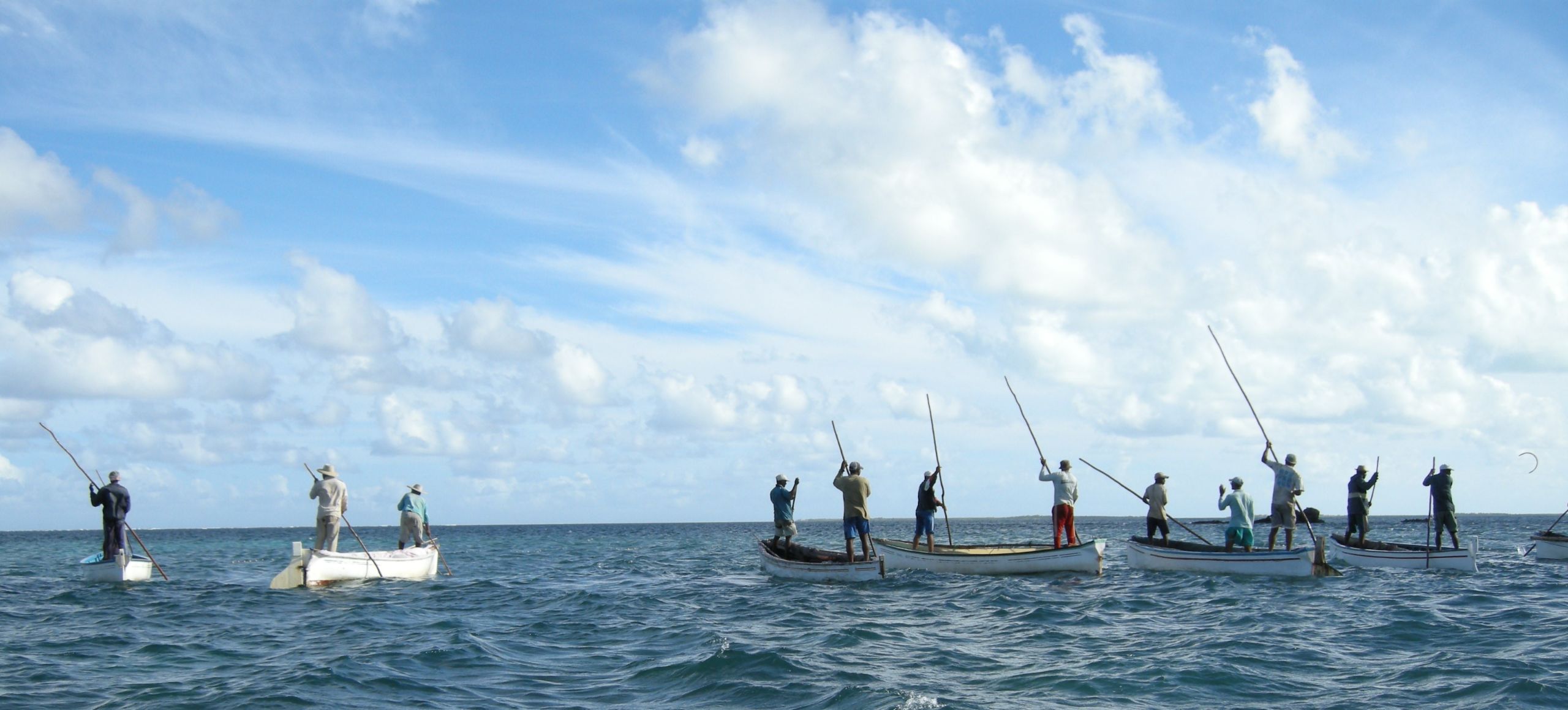
Fishers just off the coast of Rodrigues Island, Mauritius. Photo: © UNDP Mauritius, SGP Mauritius.
Since most of the traditional fishing village’s 350 residents depend on the ocean for food and livelihoods, this has put a strain on their household earnings.
Climate change disproportionately affects Small Island Developing States (SIDS) and vulnerable local communities such as Baie du Nord.
Droughts, unpredictable storms and flooding, degradation of coral reefs, and sea level rise are just some of the consequences of climate change experienced by SIDS. These not only affect the natural environment, but also have ripple effects on every sector of the economy and society.
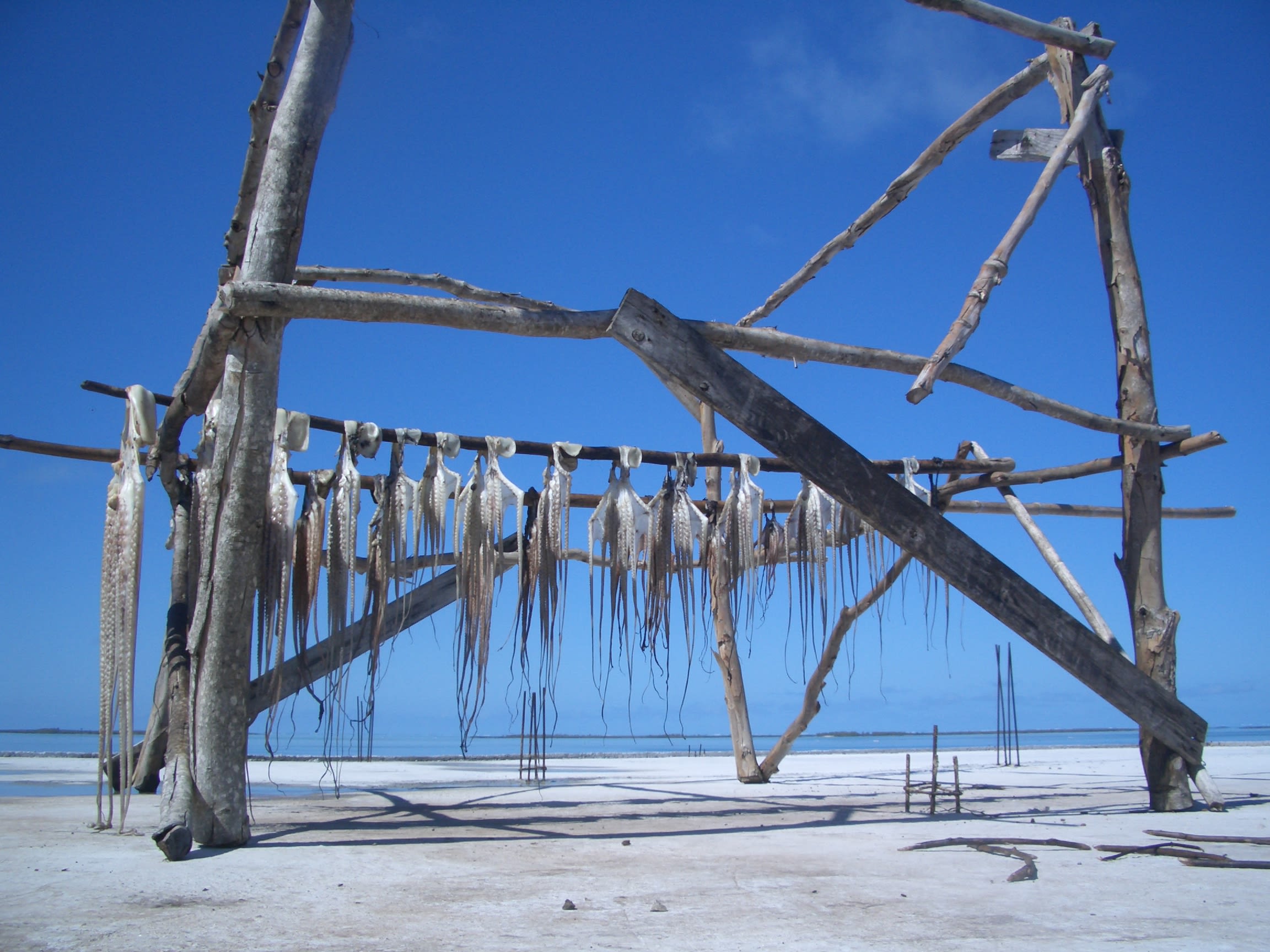
Octopus drying in the sun. Rodrigues Island, Mauritius. Photo: © UNDP Mauritius, SGP Mauritius.
Healthy ecosystems that are resilient to climate change and stressors are not only critical to securing environmental benefits, but also serve as the foundation for economic and human development.

Fishers just off the coast of Rodrigues Island, Mauritius. Photo: © UNDP Mauritius, SGP Mauritius.
Fishers just off the coast of Rodrigues Island, Mauritius. Photo: © UNDP Mauritius, SGP Mauritius.

Octopus drying in the sun. Rodrigues Island, Mauritius. Photo: © UNDP Mauritius, SGP Mauritius.
Octopus drying in the sun. Rodrigues Island, Mauritius. Photo: © UNDP Mauritius, SGP Mauritius.
This is where an approach called community-based adaptation (CBA) comes into play: it is a locally led process that aims to reduce the vulnerability and improve the adaptive capacity of communities to current and future climate change impacts, based on their specific environmental, economic, social and cultural contexts.
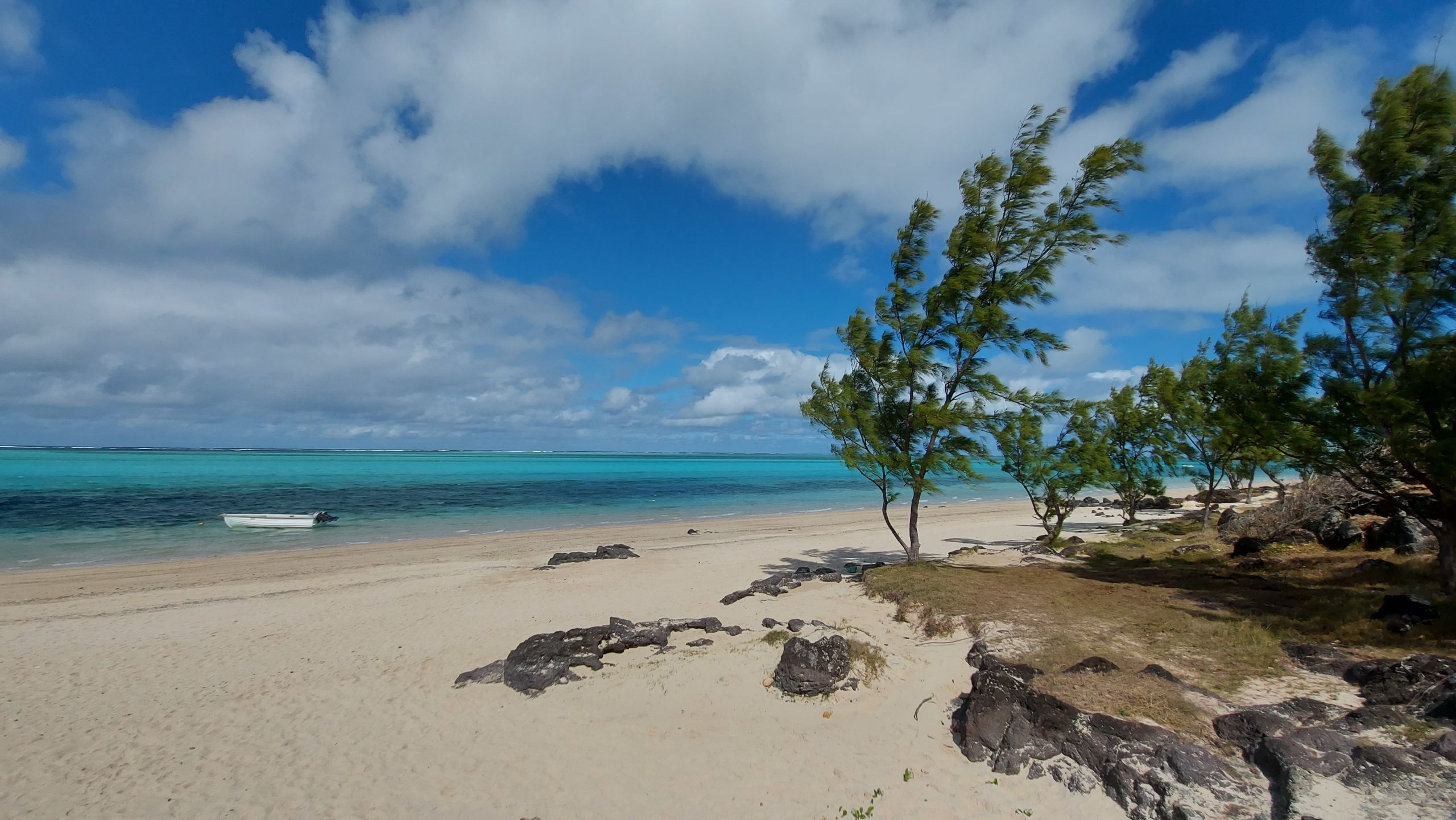
Since 2009, with support from the Global Environment Facility’s Small Grants Programme (SGP), implemented by the United Nations Development Programme, local communities have been investing in climate change adaptation and resilience-building with dedicated funding from the Australian Government’s Department of Foreign Affairs and Trade (DFAT). DFAT has been a key partner and has funded CBA projects in 41 countries, including SIDS in the Pacific, Caribbean, Atlantic and Indian Oceans.
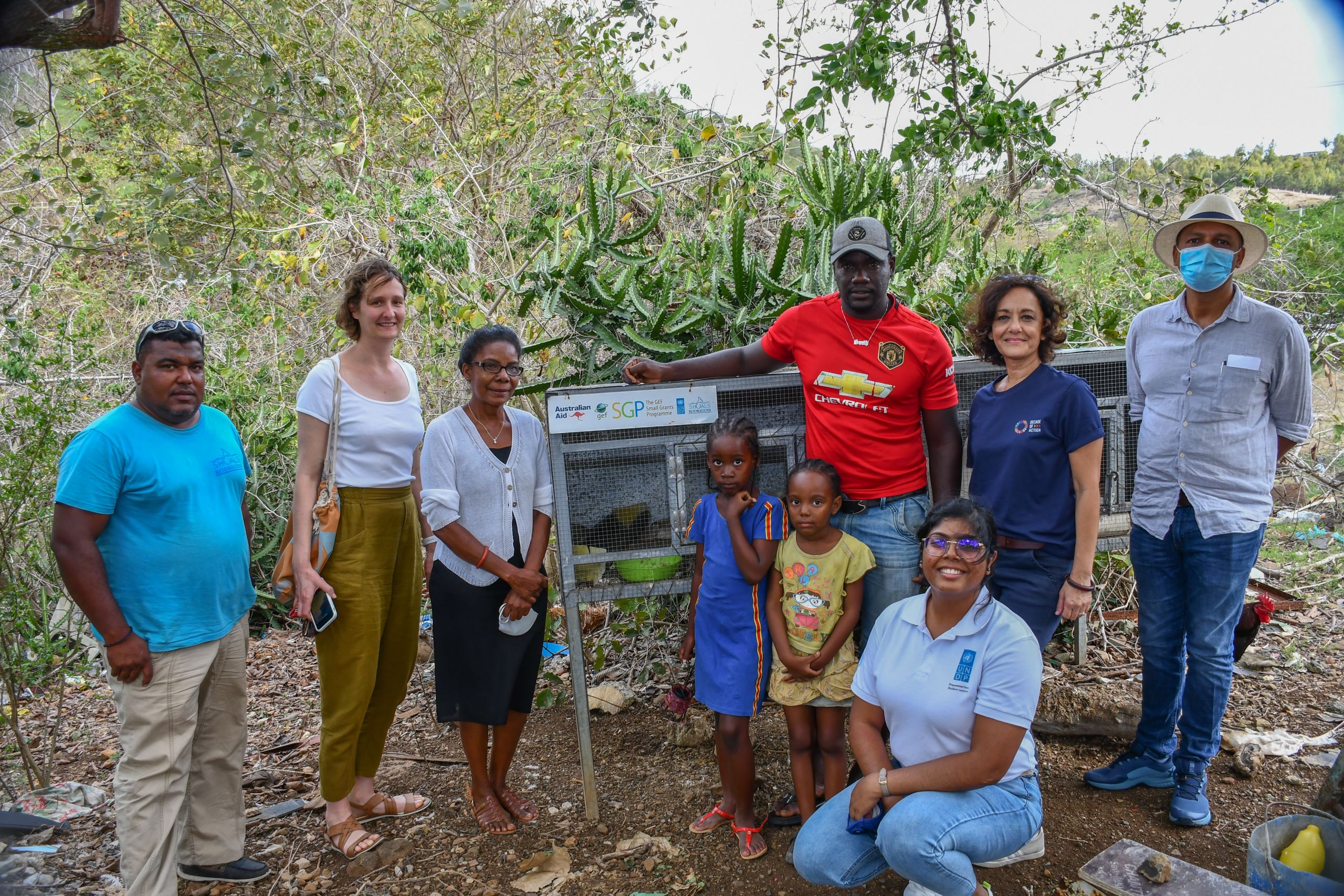
Australia High Commisioner visit. Photo: © UNDP Mauritius, SGP Mauritius.
In 2015, SGP partnered with the Shoals Rodrigues Association to implement a CBA project to help the fishing-dependent community of Baie du Nord adapt to climate change.
The project conducted several meetings and consultations with the local community, national partners, and technical experts to assess the community’s vulnerabilities and their levels of awareness to climate change impacts.
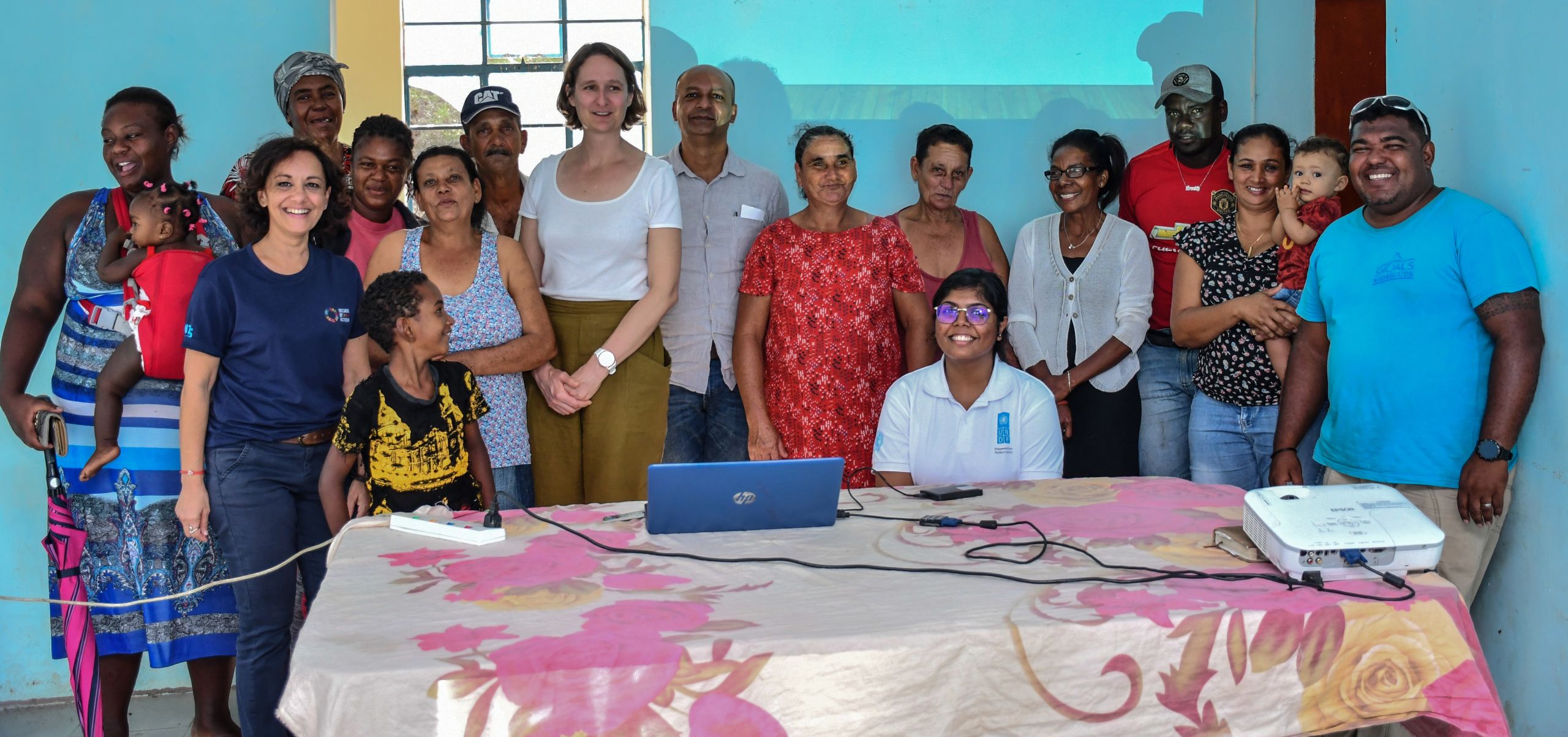
Community consultation with Australian High Commissioner. Photo: © UNDP Mauritius, SGP Mauritius.
These consultations found that villagers needed a more stable water supply to cope with reduced rainfall during dry months, when they depend on truck-borne water and must pay for their own storage tanks to receive and store this vital resource.
The consultations also revealed that alternative sources of income were needed to help villagers cope with declining fish and octopus catch.
To address these needs, the project focused on three activities: developing a coastal vulnerability assessment to support coastal zone management and planning in the area; introducing sustainable poultry farming to diversify income and reduce the community’s dependence on fishing; and installing rainwater harvesting tanks to improve water supply.
Many local communities are dependent on natural resources to generate income and supplement household needs, but climate impacts such as drought and floods are affecting the health of these resources and ecosystems. As such, a key focus of the CBA programme was to diversify livelihood options for local communities by providing training and building skills in other locally appropriate areas. In the case of Baie du Nord, this meant introducing poultry and sheep farming to the fishing dependent community.

Australia High Commisioner visit. Photo: © UNDP Mauritius, SGP Mauritius.
Australia High Commisioner visit. Photo: © UNDP Mauritius, SGP Mauritius.

Community consultation with Australian High Commissioner. Photo: © UNDP Mauritius, SGP Mauritius.
Community consultation with Australian High Commissioner. Photo: © UNDP Mauritius, SGP Mauritius.
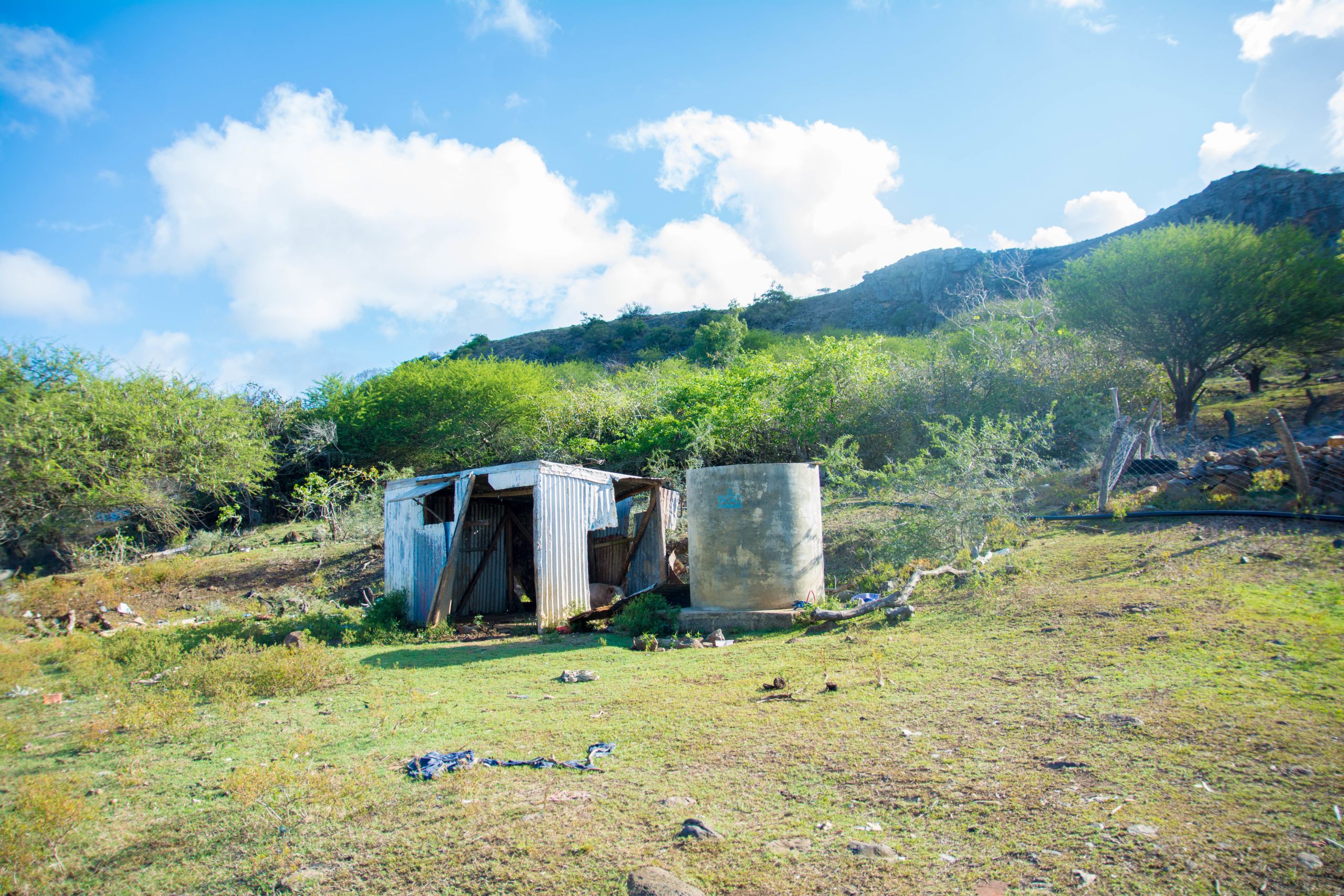
A simple and time-tested method for collecting water, rainwater harvesting is a commonly practiced climate change adaptation technique. Photo: © UNDP Mauritius, SGP Mauritius.
A simple and time-tested method for collecting water, rainwater harvesting is a commonly practiced climate change adaptation technique. Photo: © UNDP Mauritius, SGP Mauritius.
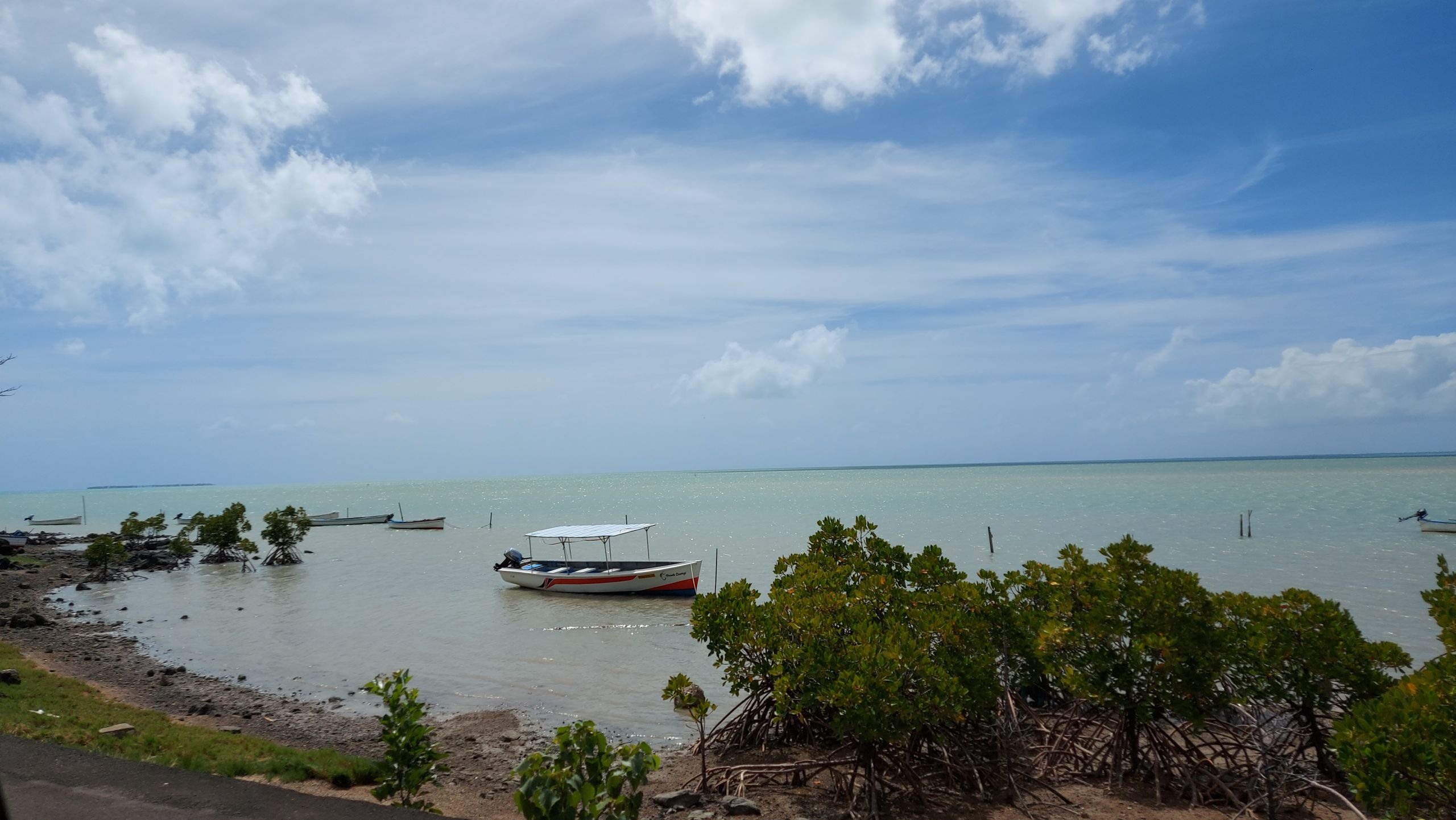
Rodrigues coastline. Photo: © UNDP Mauritius, SGP Mauritius.
Rodrigues coastline. Photo: © UNDP Mauritius, SGP Mauritius.
The coastal vulnerability assessment was conducted in a participatory format that combined villagers’ traditional knowledge with data-rich maps to identify low-lying coastal areas prone to sea level rise and flooding.
This generated a recommendation for future development to be restricted to at least two metres above present sea levels.
The exercise also contributed to the implementation of the National Integrated Coastal Zone Management Plan for Rodrigues Island, improving villagers’ understanding of climate change threats and bolstering their disaster preparedness skills.
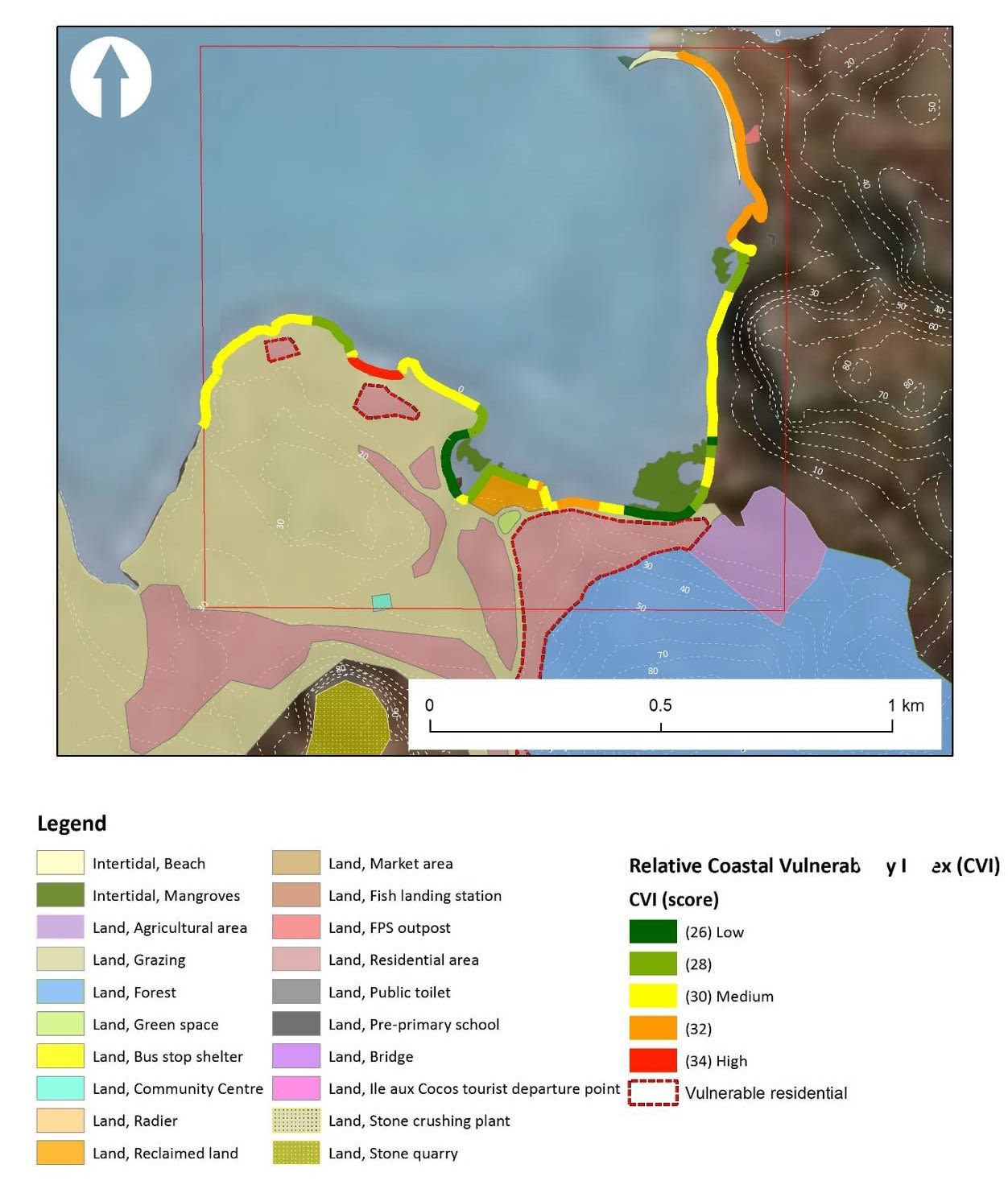
In partnership with the Centre de Formation Agricole Frere Remy, the Shoals Rodrigues Association trained villagers on poultry farming and agriculture, domestic financial management, project implementation, marketing, and value-added products.
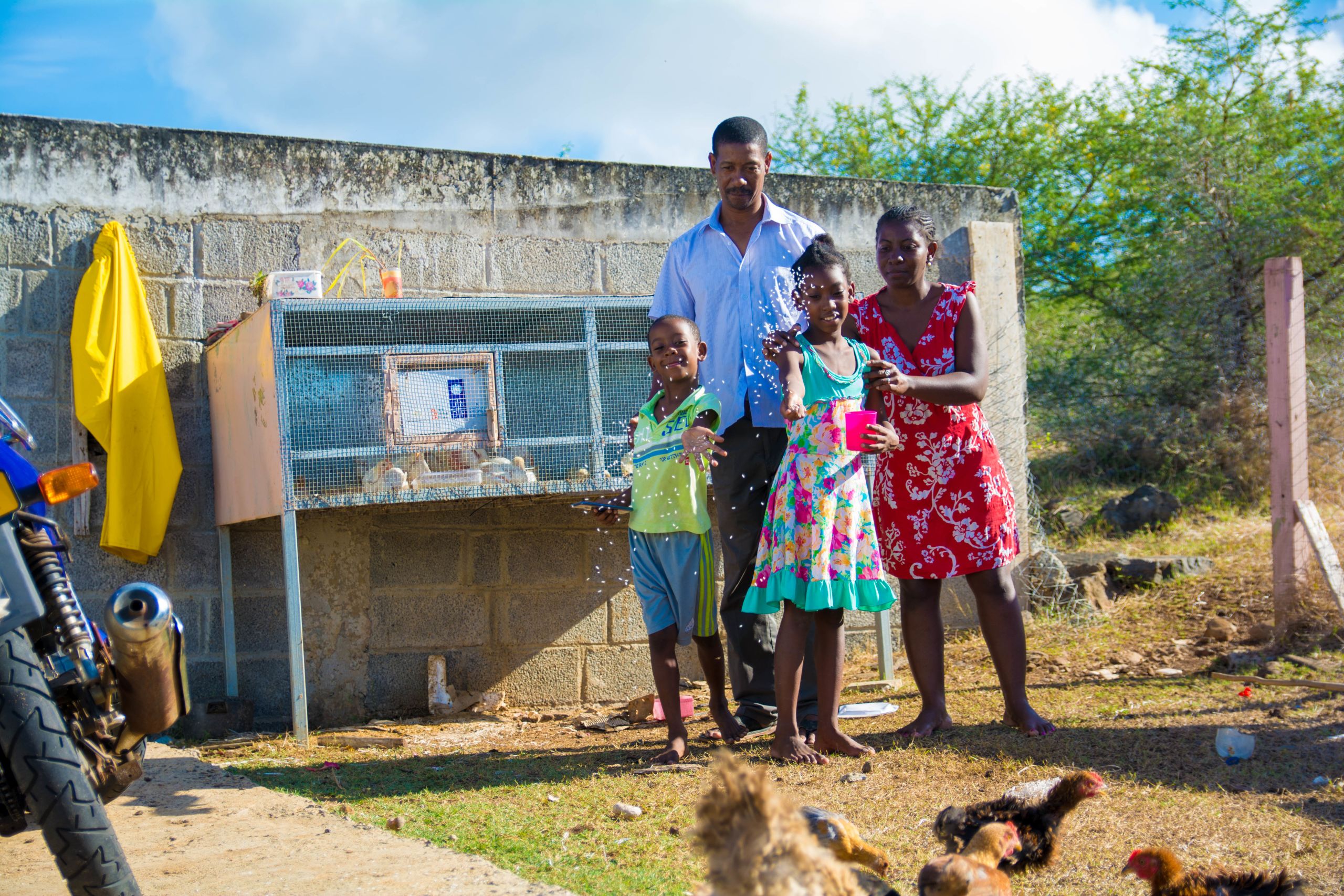
Local community members are dedicated to passing on a passion for farming to their grandchildren. Photo: © UNDP Mauritius, SGP Mauritius.
This activity was particularly important for empowering local women:
“The agronomists trained us to care for the animals and understand how to manage our poultry business by selling the eggs and saving enough to buy feed. We are also transferring the passion for farming to our grandchildren.”
This increased the monthly income of 16 local families by nearly 40 per cent. The eggs and chickens also complement their food consumption and help families build their savings to increase their financial resilience.
An additional 60 sheep and five piglets were given to the village in 2020, benefiting another 144 people.
The villagers were trained and continued with these alternative livelihood activities even after the project was completed.
This community project is a model that can easily be adapted and replicated in other communities that face similar challenges.
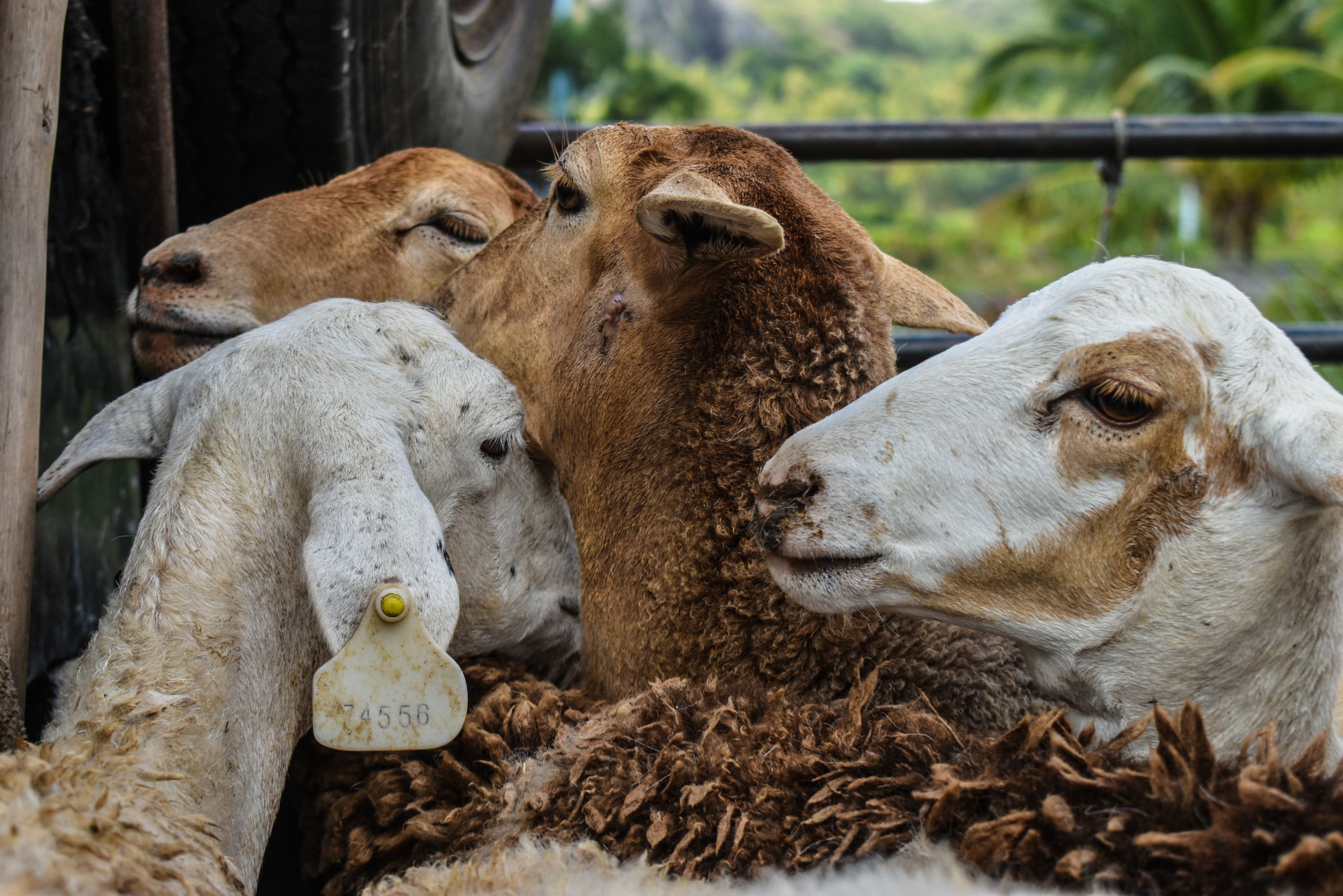
“I never did animal farming before; I have always been a fisher. I started the project with a poultry pen, five chicks and feed. After three years, I now have the biggest flock of the village - 50 strong. My objective is to be able to develop a better livelihood from farming and make the flock bigger, to reach at least 100!”

Local community members are dedicated to passing on a passion for farming to their grandchildren. Photo: © UNDP Mauritius, SGP Mauritius.
Local community members are dedicated to passing on a passion for farming to their grandchildren. Photo: © UNDP Mauritius, SGP Mauritius.
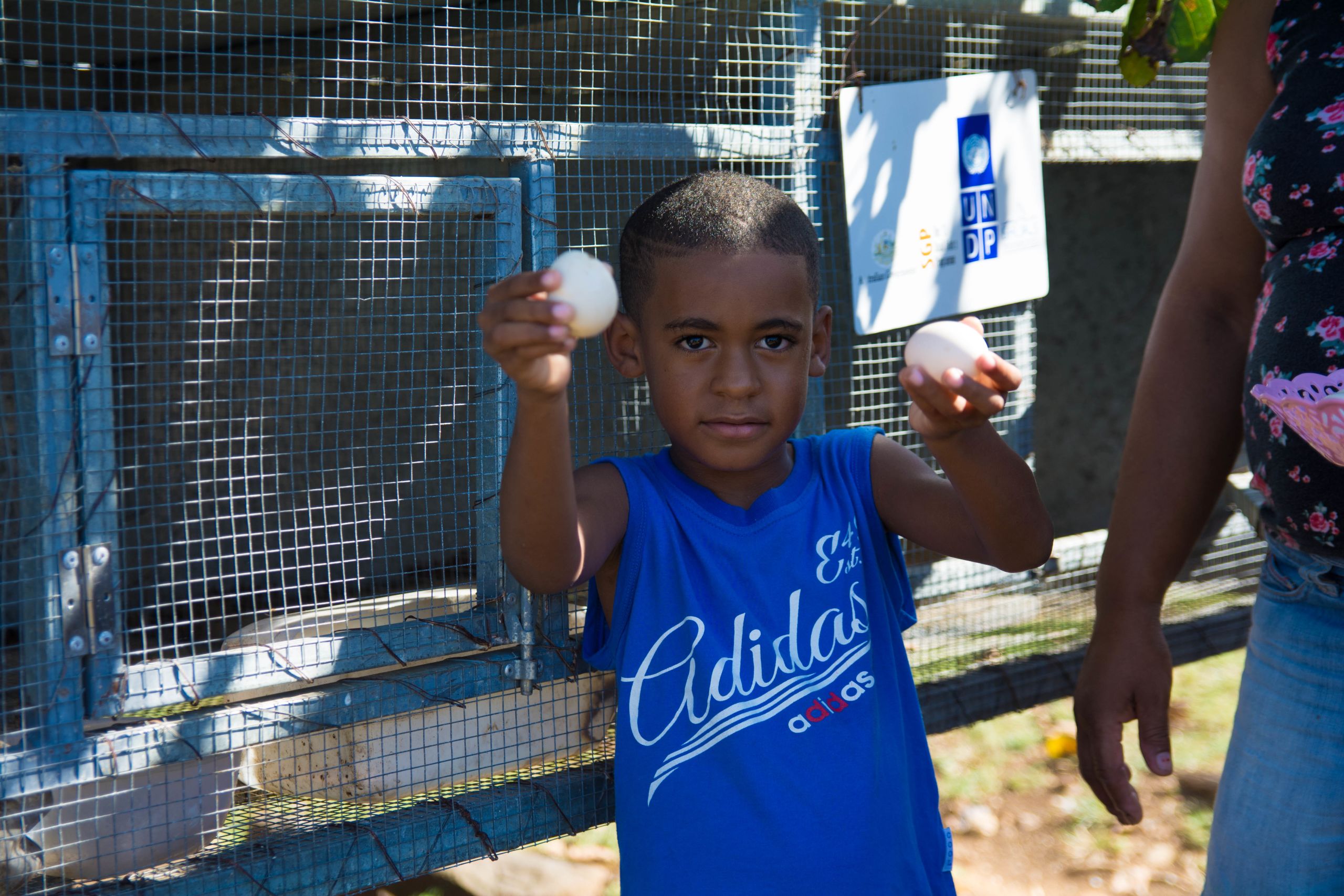
Young boy proudly holding eggs harvested. Photo: © UNDP Mauritius, SGP Mauritius.
Young boy proudly holding eggs harvested. Photo: © UNDP Mauritius, SGP Mauritius.
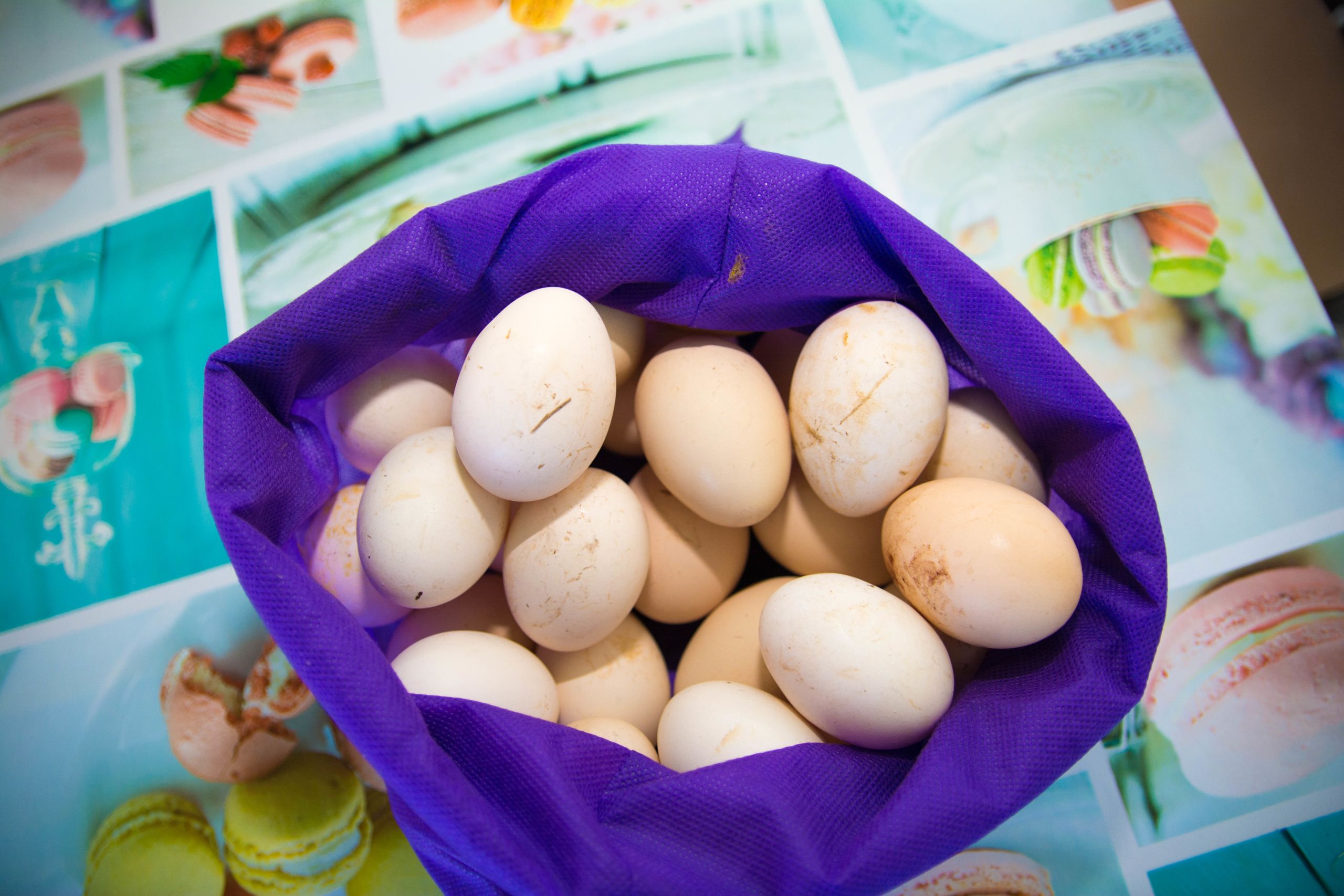
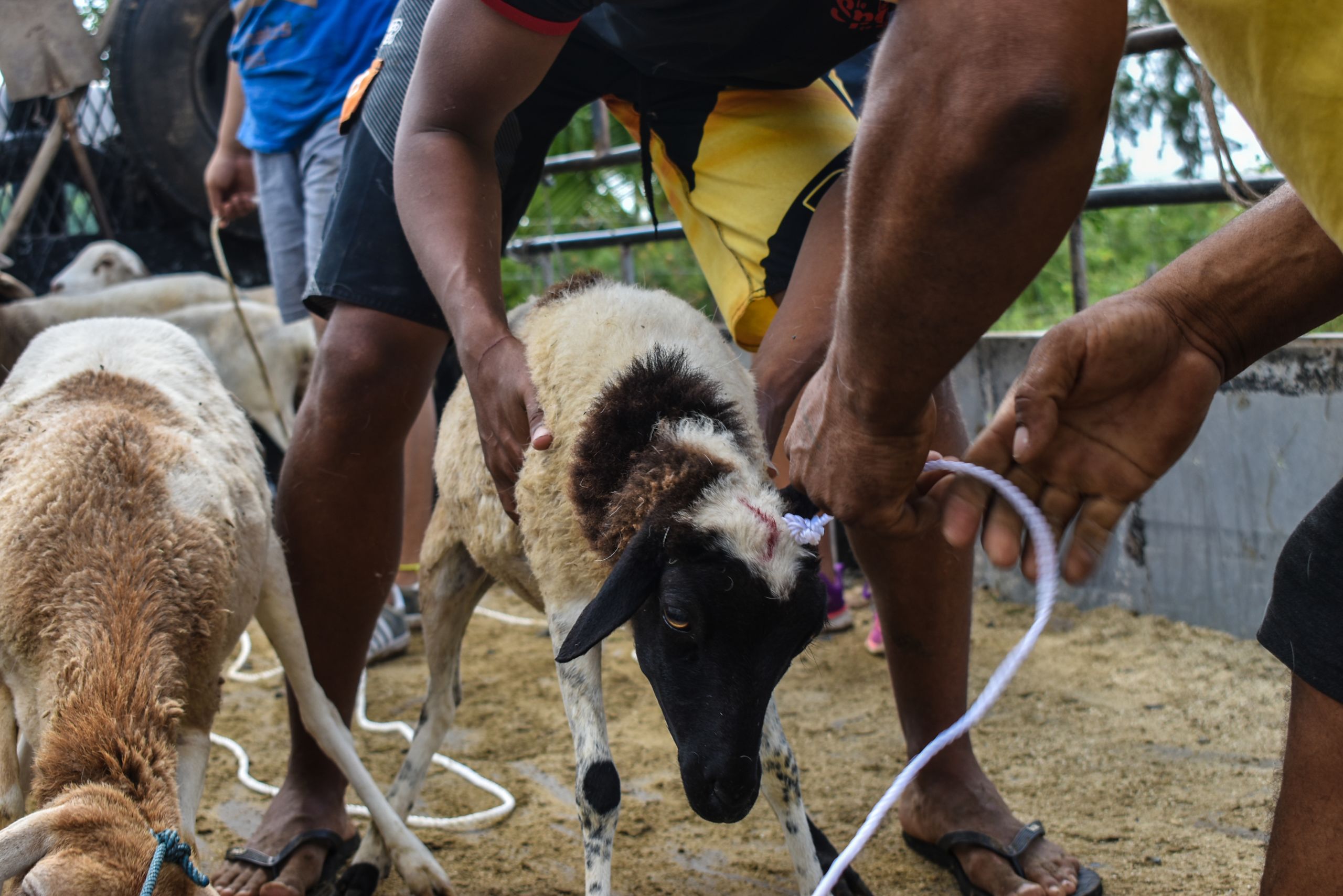

Finally, the 2,000-litre rainwater-harvesting tanks installed in 38 households reduced the village’s dependence on truck-borne water and increased the amount of water available for gardens and livestock farming.
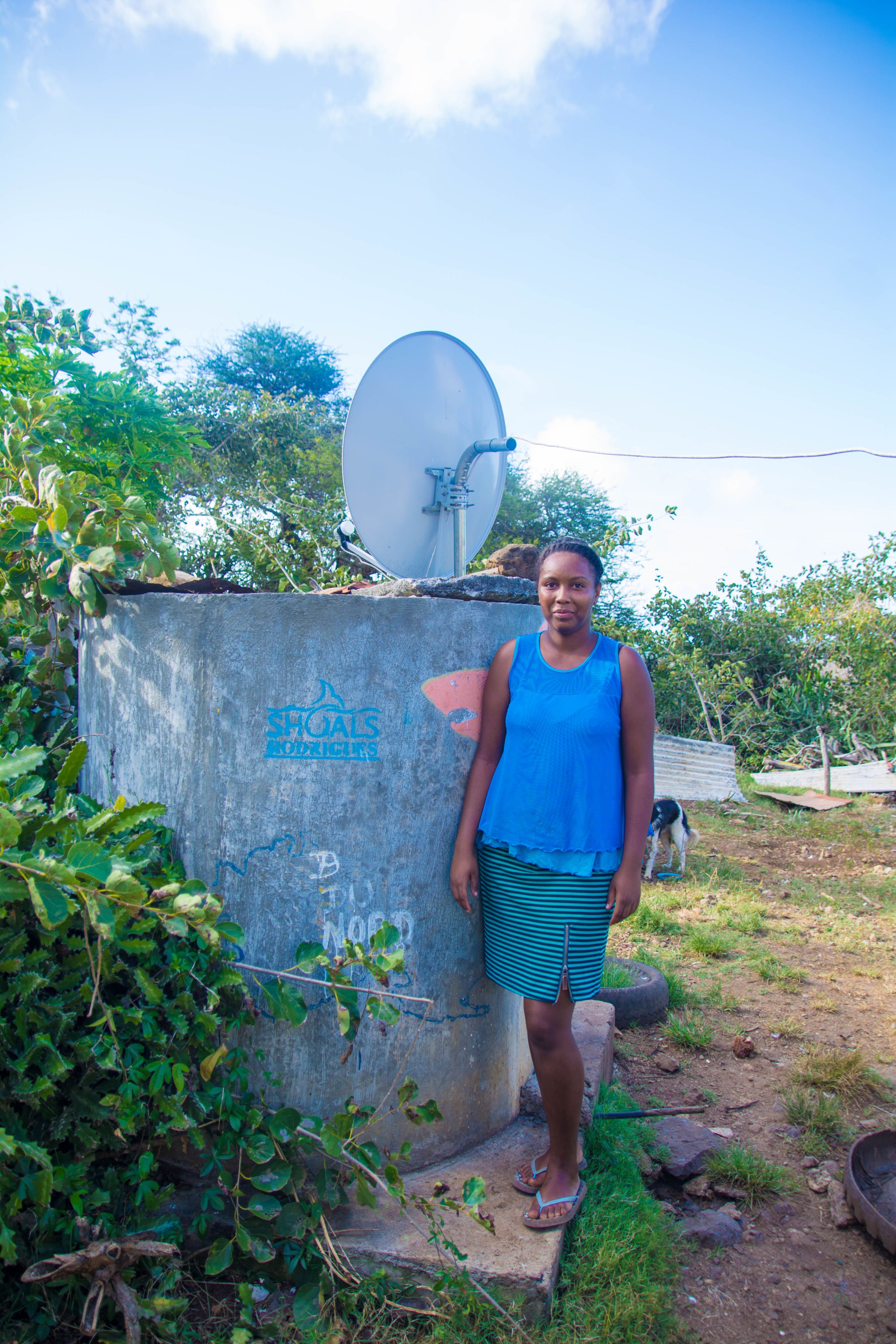
“This tank has greatly helped me and my family, as before the project I had only four drums of water per month and these [were] usually finished after a week, but now with the water tank I can go up to 20-25 days. Right now, it is helping greatly as the domestic water supply has not worked [since a cyclone hit us, but] the tanks are collecting water each time it rains.”
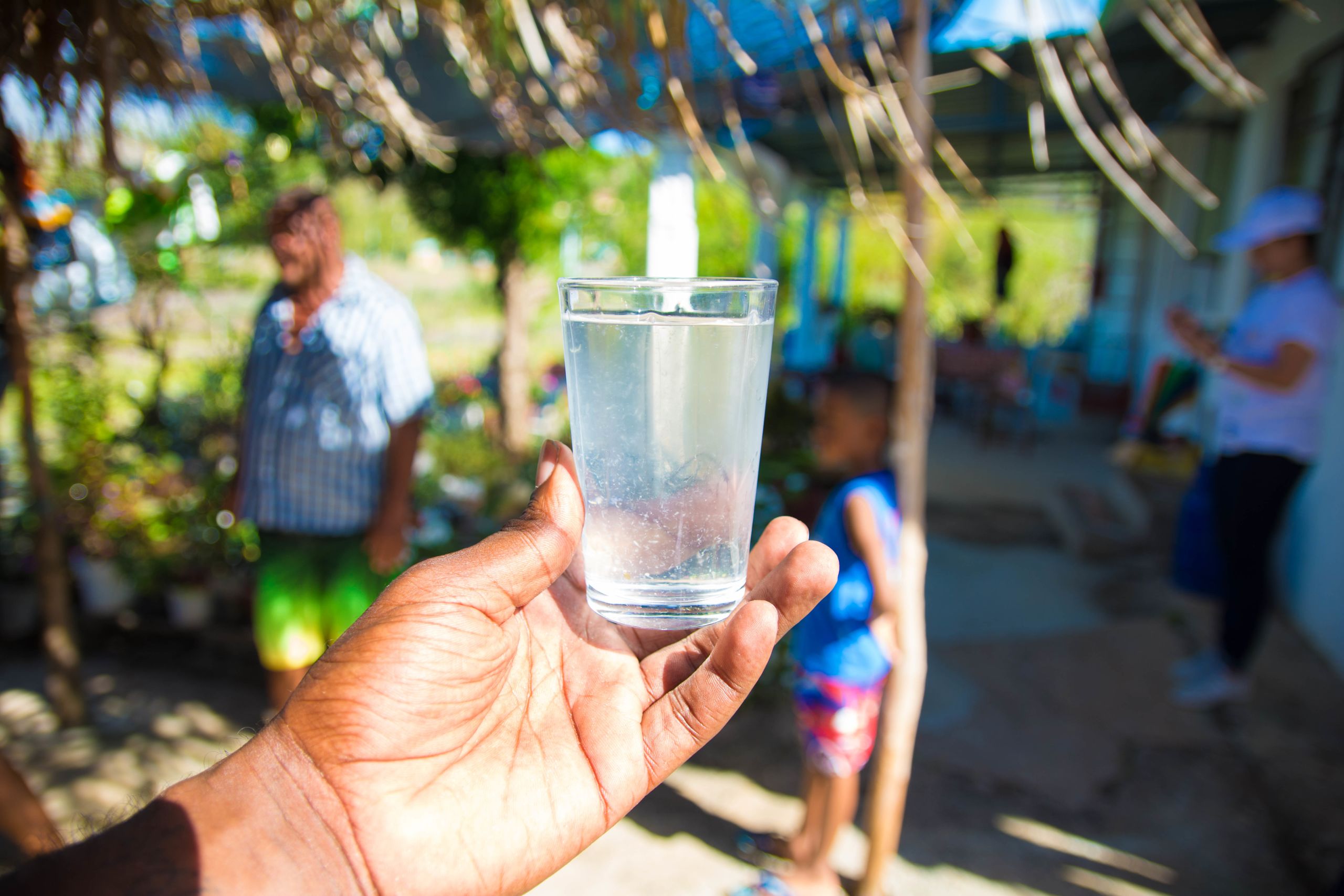
The Shoals Rodrigues Association also prepared a policy brief for local authorities on rainwater harvesting in the context of climate change, recommending its incorporation into regulations for new buildings on the island as a way of empowering rural communities, improving water security, sanitation and hygiene, reducing household costs, and improving food security.


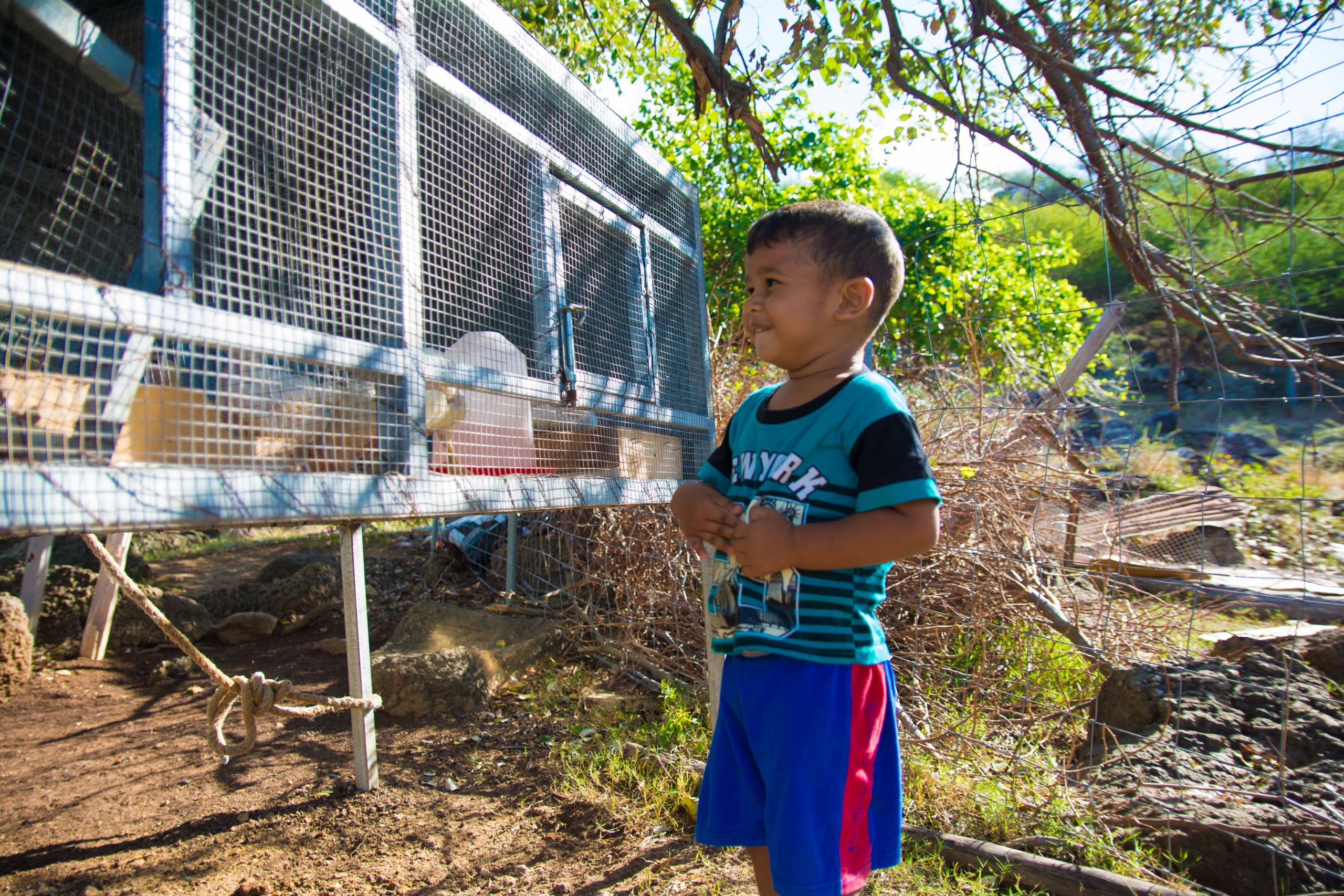
Photo: © UNDP Mauritius, SGP Mauritius
Photo: © UNDP Mauritius, SGP Mauritius
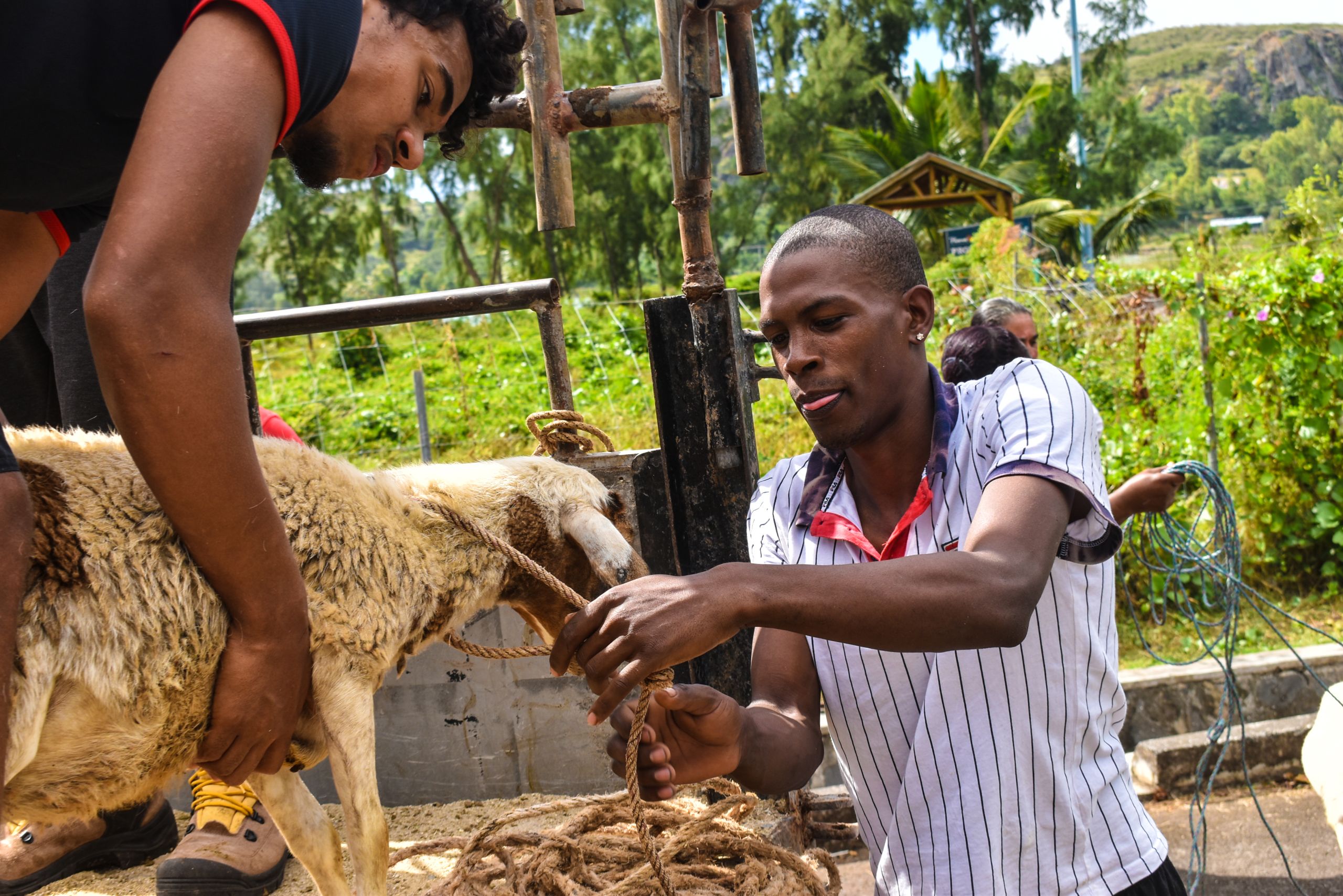
Photo: © UNDP Mauritius, SGP Mauritius
Photo: © UNDP Mauritius, SGP Mauritius
Building the capacity and resilience of local communities and empowering them to take action and shape their future is at the heart of the SGP’s CBA programme.
Over the last 10 years, SGP has supported 237 CBA projects with 12 million Australian dollars in funding from DFAT, benefitting more than 250,000 people in 41 countries – including in Mauritius. To find out more, see SGP’s new publication on "Enhancing Climate Resilience: Experiences from the SGP's Community-Based Adaptation Programme".
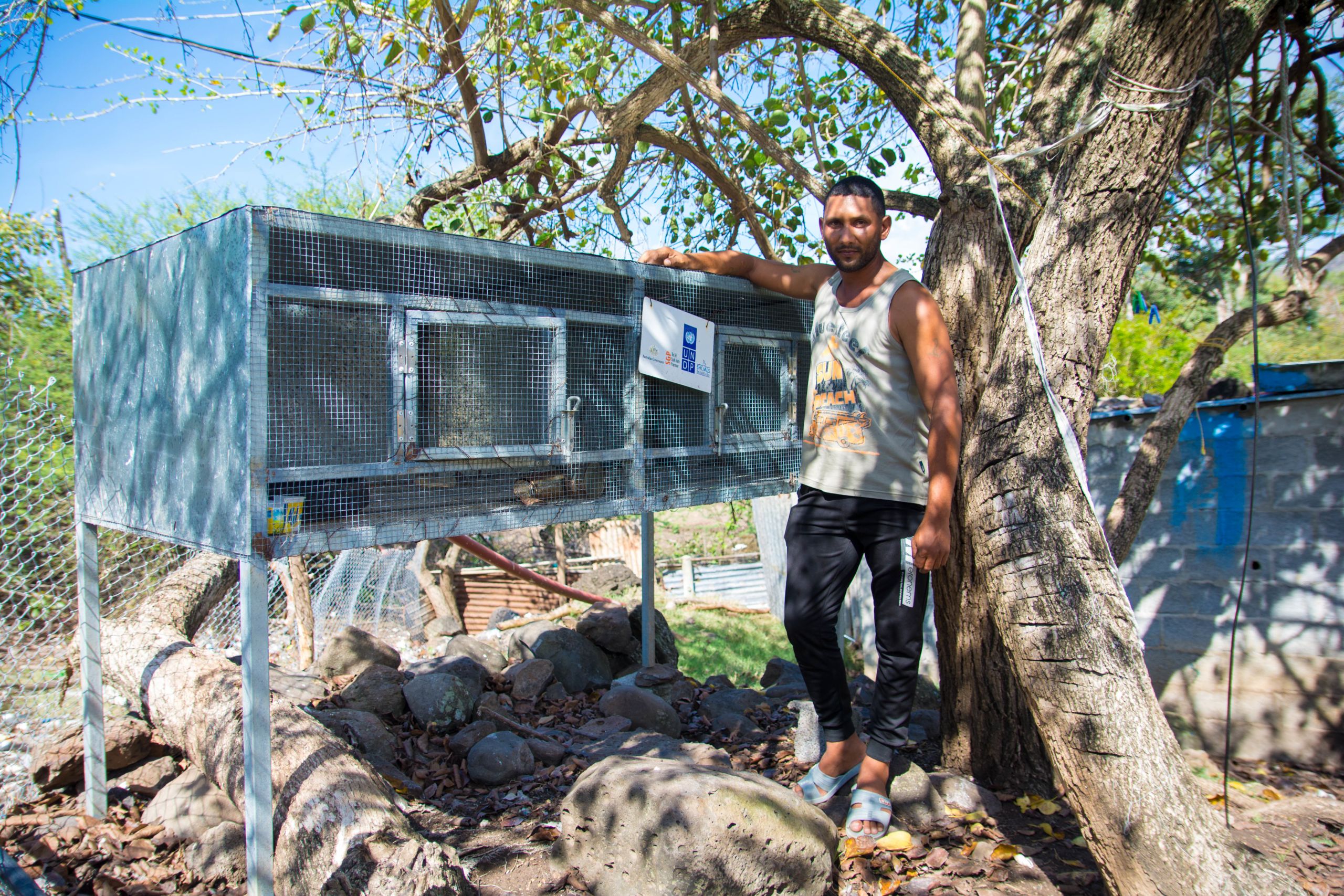
SGP provides financial and technical support to civil society and community-driven initiatives that address global environmental issues while improving local livelihoods.
In Mauritius, it has supported more than 165 projects since 1996 in the areas of biodiversity, climate change, international waters, land degradation, chemical and waste management, among others.
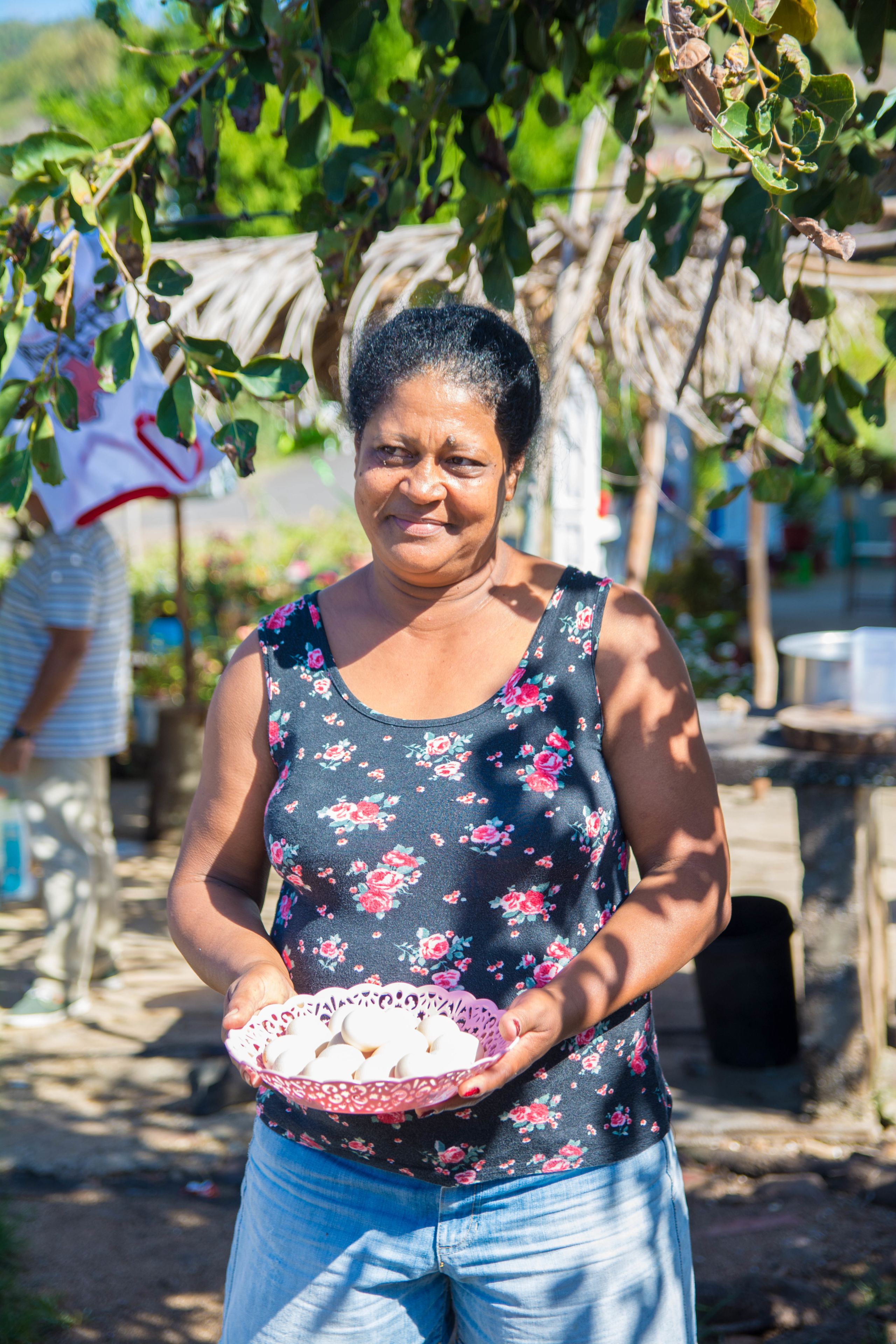
For more details on SGP’s work in Mauritius, visit the country’s profile here.
For information on SGP global portfolio, visit the global SGP website.
For more information on the CBA Programme, please visit here.



Story by: Rissa Edoo, Ana Paula Canestrelli, Pamela Bapoo-Dundoo, Mishka Bundhoo and Andrea Egan
Photos: © UNDP Mauritius, SGP Mauritius
Header photo: © UNDP Mauritius, SGP Mauritius
Location: Rodrigues Island, Mauritius
